Having made a similar comeback myself recently, from Asia to Europe, I could sympathize with this keen observer of a world. It is somewhat ironical fact that I did a shift an ocean eastwards, having in mind his idolatry of the Chinese and the East, but feelings are compatible. Not in content, but in reflections they awoke.
Most Millerian treat is that the book is NOT what it promised to be: he could not find anything worth recording during his trip. Everything disgusted him-and more so as he was ready to enjoy, feast on the Return, discovery...there was nothing to discover, only a vasteland of Humanity.
Yet, he produced a memorable tome of memories of America Lost, which is a pleasure to read, an agreeable companion to the Hemingway and Orwell impressions from Paris and London, which it followed in my readings.
I love his start with a citation from Vivekananda, which is setting the stage for the anonimity of his heros. Artists are the only recognizable patterns on the soil of America, and they are like rare birds, in danger of extinction. Others are regulars, tramps, or just an illusion: "The fat, puffy, wattle-faced man of forty-five who has turned assexual is the greatest monument to futility that America has created. He's a nymphomaniac of energy accomplishing nothing. He's a hallucination of the Paleolithic man." Or: "Most of the young men of talent whom I have met in this country give one the impression of being somewhat demented. Why shouldn't they? They are living amidst spiritual gorillas, living with food and drink maniacs, success-mongers, gadget innovators, publicity hounds."
Sounds familiar? What would Henry Miller say about celebrity culture we suffer today? I think he would say nothing, he would follow Hemingway, and right so.
"The american way is to seduce a man by bribery and make a prostitute of him. Or else to ignore him, starve him into submission and make a hack of him."
There is a hope: only yesterday I heard from an American expat that maybe it is not so bad that USA is turning the 3rd world country, as maybe it will put the people there back to senses, turn them away from the utilitarian paradigm in which they are living. A refreshing thought, but it is painful to see it has to go through such transformations from the very times described by Miller.
The worse is that Europe is trotting, as usual, 10 years behind America. We still think digital watches (or, today, iWatches) are a good idea...
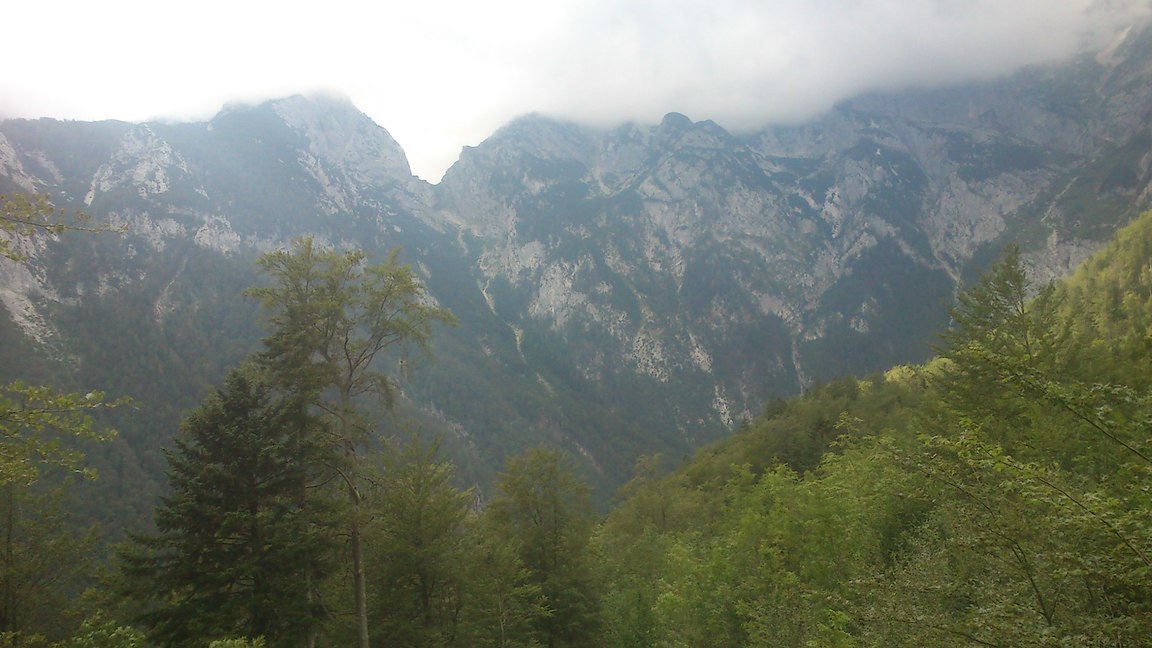 At the top we are welcomed by the pillars of the cargo lift:
At the top we are welcomed by the pillars of the cargo lift:
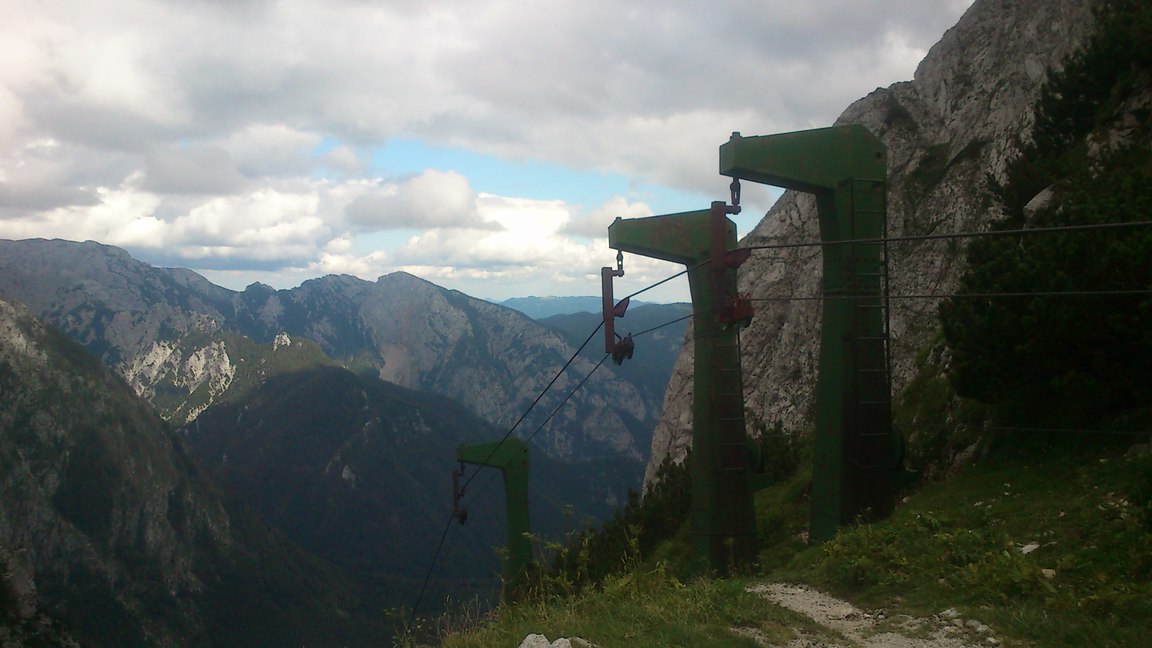 Looking down-yes, this climb is quite steep:
Looking down-yes, this climb is quite steep:
 Cojsova house stands here about 110 years (this is a new house, the first was at a nearby location):
Cojsova house stands here about 110 years (this is a new house, the first was at a nearby location):
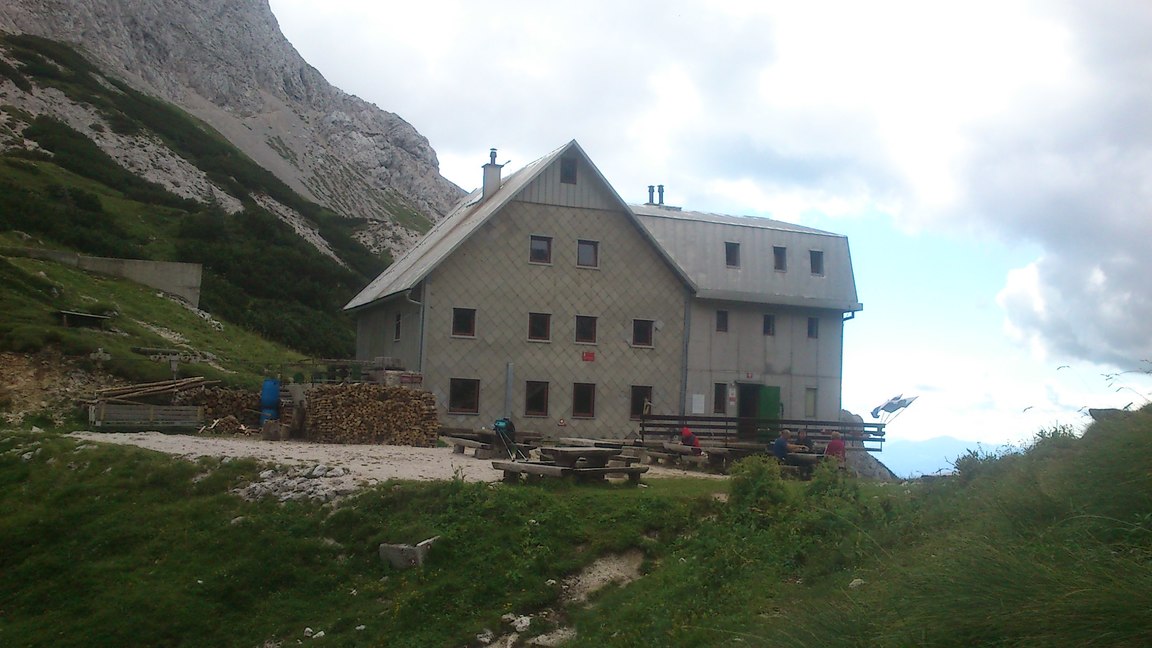 It's not really about one man, but about two brothers Zois who first listed the plants in this part of the
Alps and financially assisted first ascents in the Julian Alps, even before the 1800s.
The house is beautiful, with a little more water and a few more toilets would be even better. Be sure to take all the water you need
from the valley below, up there water is scarce.
The primary goal of our ascent was Grintovec, which was the first peak in the Slovenian Alps of such height (2558 m),
which was climbed, because of its accessibility. From Cojsova house it took
about 3 hours of easy hike. The only problem is that you need to choose a good time to catch the top cloudless and have a view around.
Clouds from the valley of the Kamniska Bistrica rise very quickly.
For us it showed good to start a bit later, as during the otherwise slightly cloudy day, the top
cleared around noon.
It's not really about one man, but about two brothers Zois who first listed the plants in this part of the
Alps and financially assisted first ascents in the Julian Alps, even before the 1800s.
The house is beautiful, with a little more water and a few more toilets would be even better. Be sure to take all the water you need
from the valley below, up there water is scarce.
The primary goal of our ascent was Grintovec, which was the first peak in the Slovenian Alps of such height (2558 m),
which was climbed, because of its accessibility. From Cojsova house it took
about 3 hours of easy hike. The only problem is that you need to choose a good time to catch the top cloudless and have a view around.
Clouds from the valley of the Kamniska Bistrica rise very quickly.
For us it showed good to start a bit later, as during the otherwise slightly cloudy day, the top
cleared around noon.
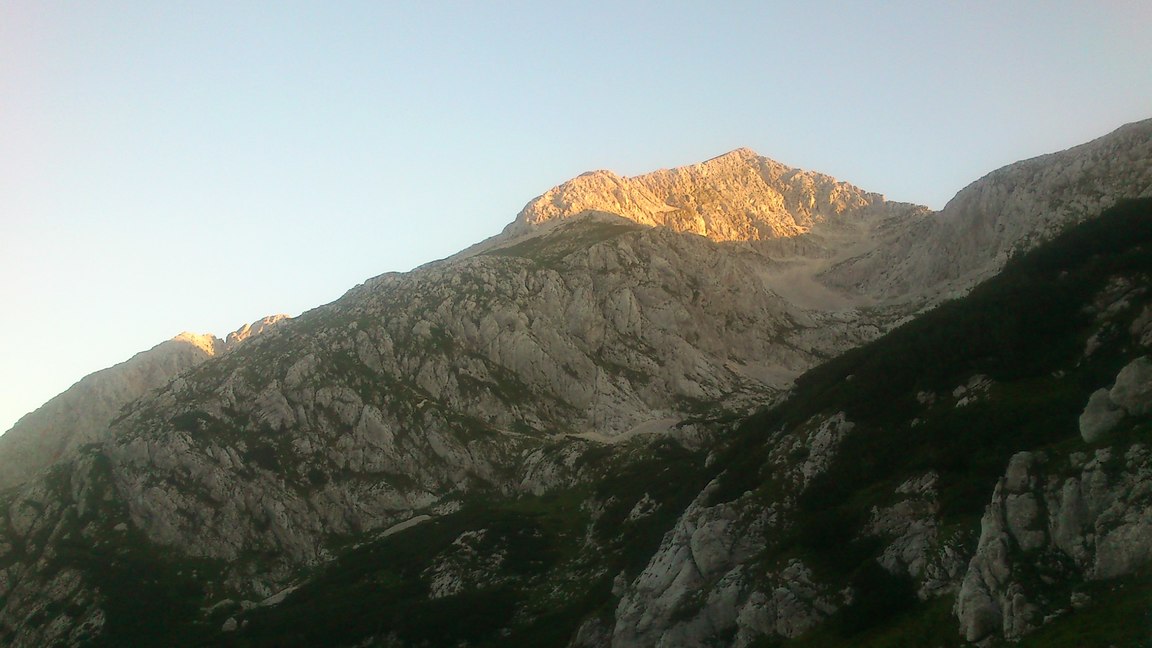 To complete this of my circles, it was necessary to reach the Turski groove, which is why I suggested a walk to
Kamniško Saddle. The next morning we headed down the path toward a beautiful bivouac
To complete this of my circles, it was necessary to reach the Turski groove, which is why I suggested a walk to
Kamniško Saddle. The next morning we headed down the path toward a beautiful bivouac
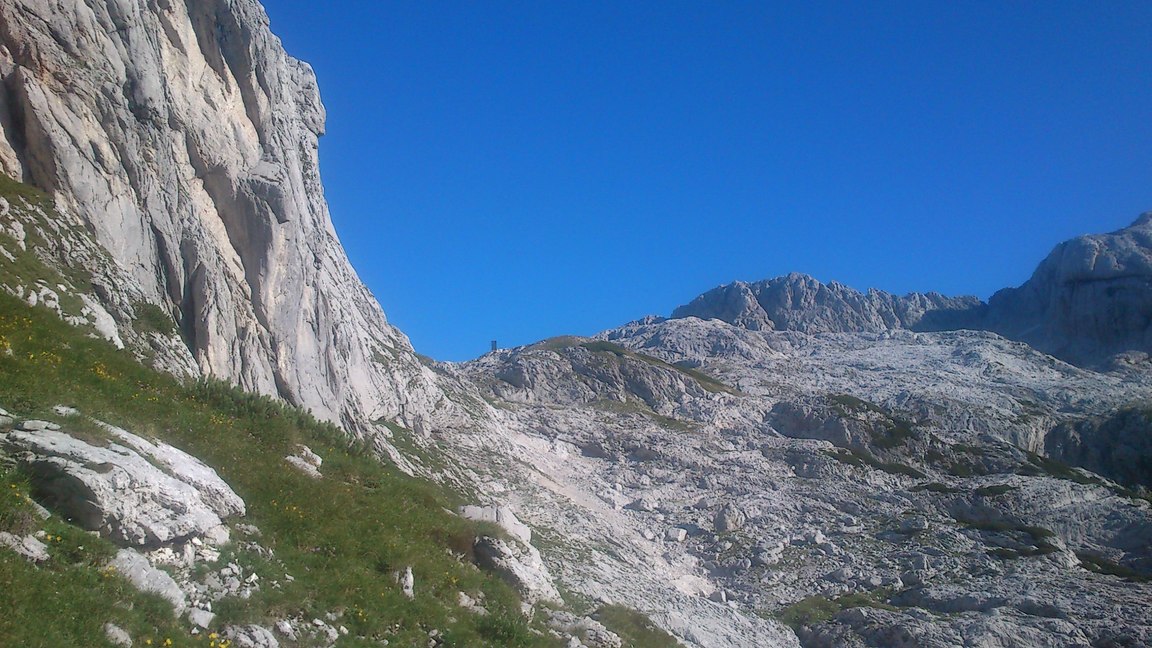 which is very interesting, it should be nice to sleep there...i na a good weather:
which is very interesting, it should be nice to sleep there...i na a good weather:
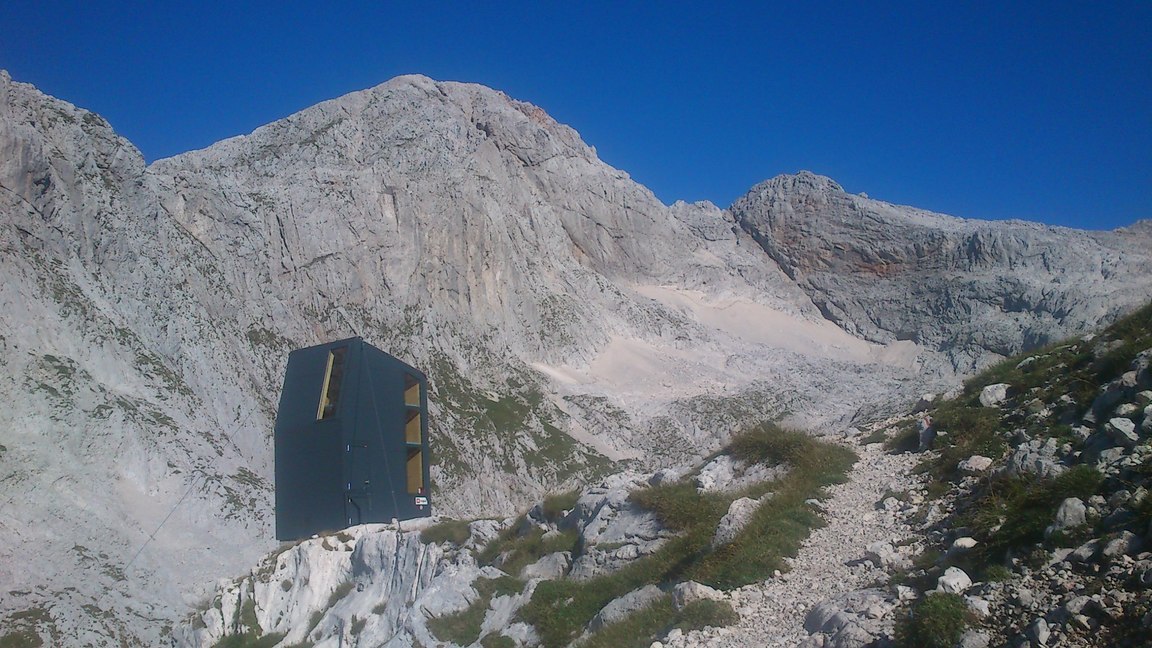 Above us was all the time Skuta, an impressive top, just a few meters lower than Grintavec:
Above us was all the time Skuta, an impressive top, just a few meters lower than Grintavec:
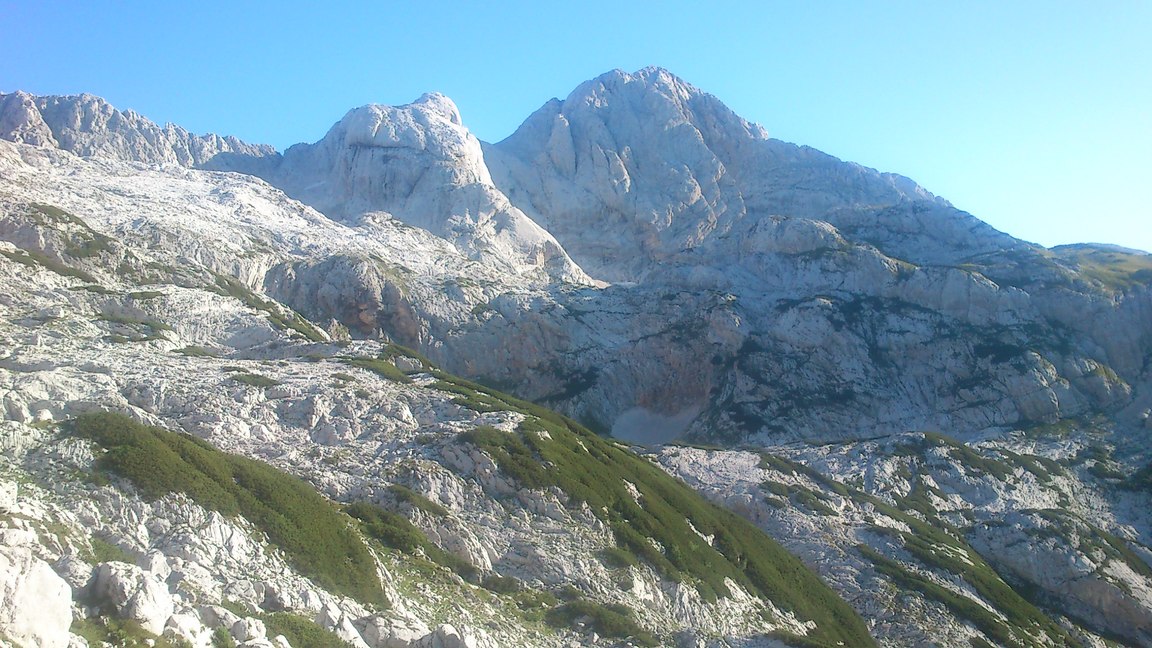 Note the exclamation point in a triangle, it is a sign for a "Very demanding trail":
Note the exclamation point in a triangle, it is a sign for a "Very demanding trail":
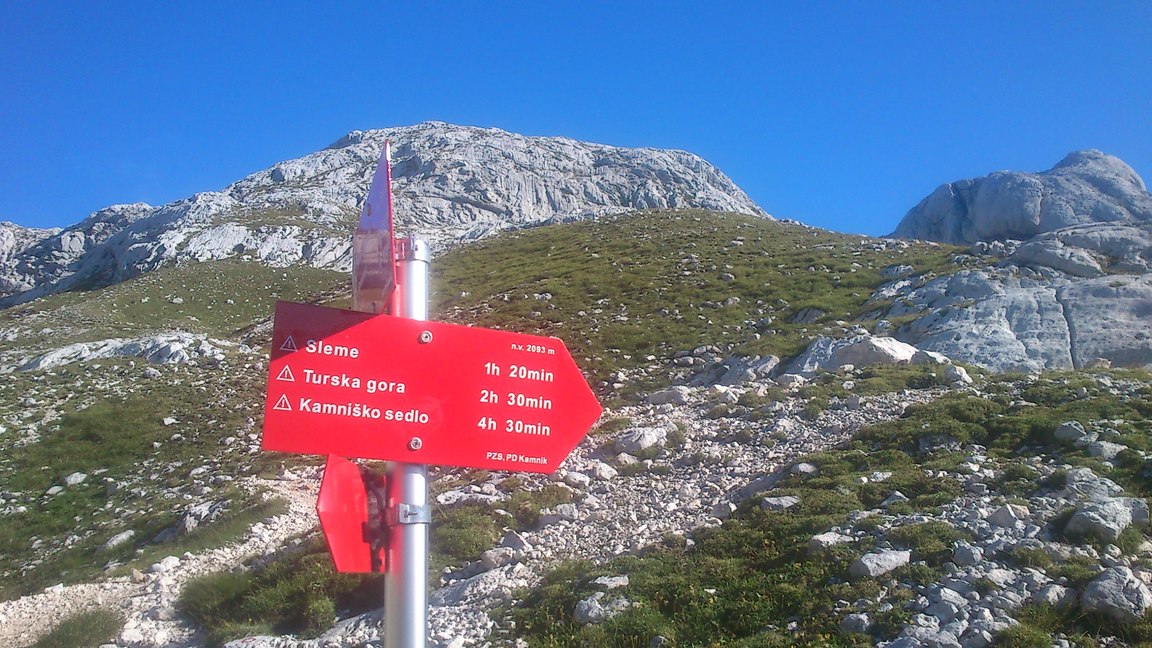 This means that it will look like this:
This means that it will look like this:
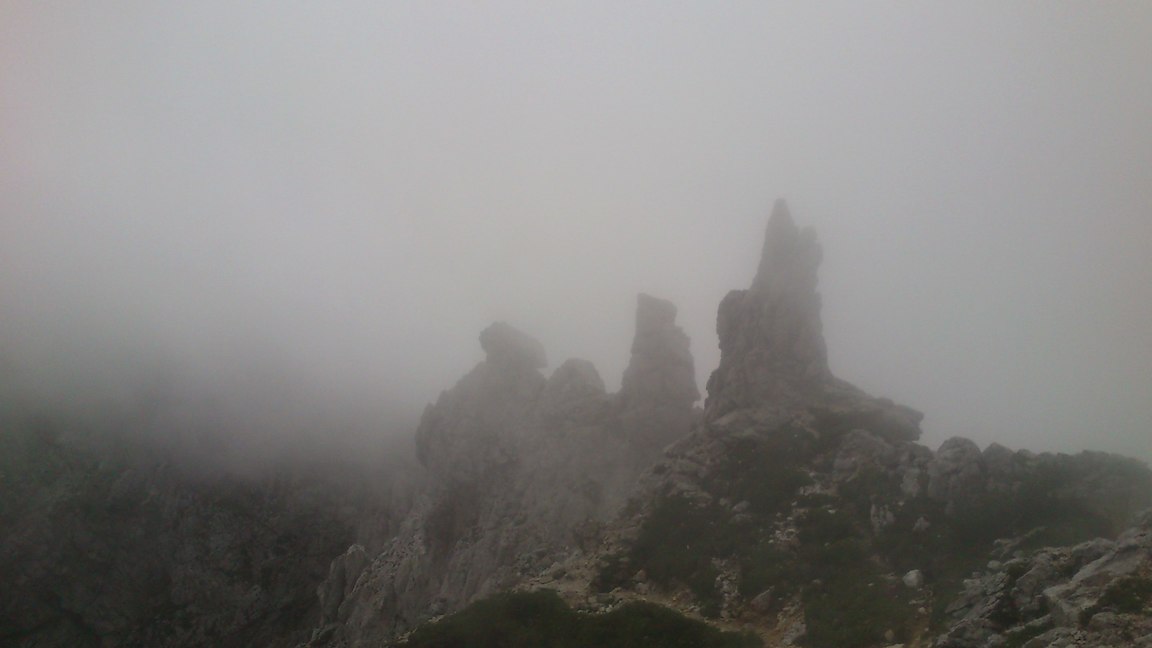 and you'll have to use your hands quite a lot:
and you'll have to use your hands quite a lot:
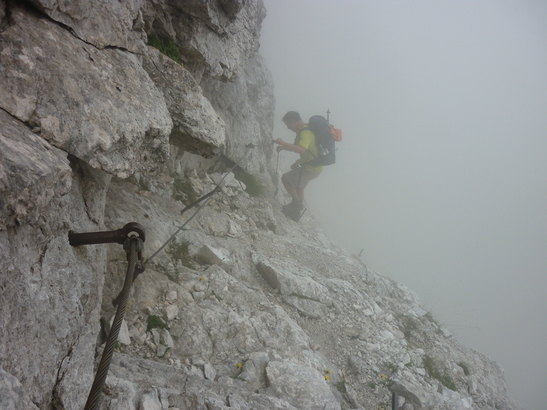 It is nicer when not in the cloud, one can see where one goes:
It is nicer when not in the cloud, one can see where one goes:
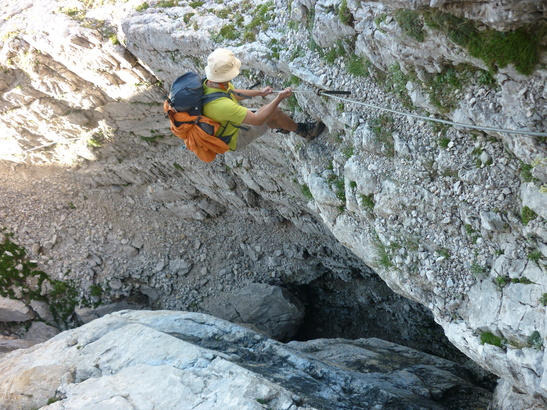 We climbed the top of Turska mountain:
We climbed the top of Turska mountain:
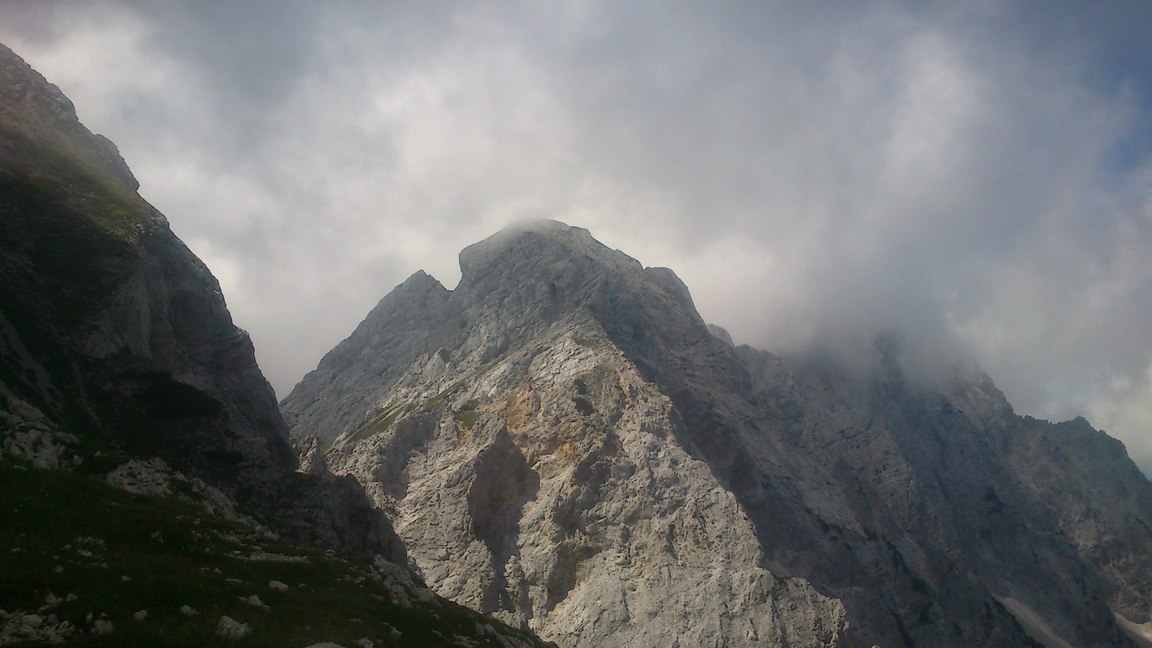 After quite a rugged walk in the cloud, it was an easy hike below top of Brana:
After quite a rugged walk in the cloud, it was an easy hike below top of Brana:
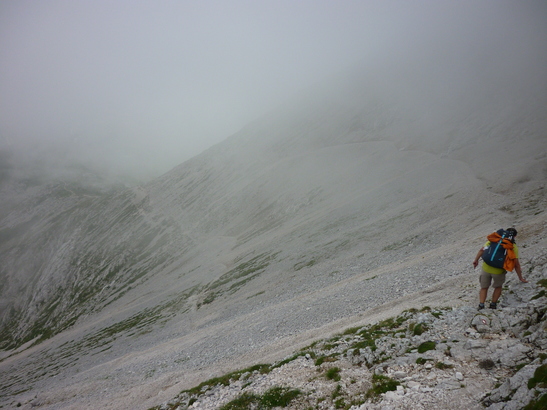 Finally, after 5 hours altogether, house on Kamnisko Saddle, the most luxury place in the Slovenian Alps:
Finally, after 5 hours altogether, house on Kamnisko Saddle, the most luxury place in the Slovenian Alps:
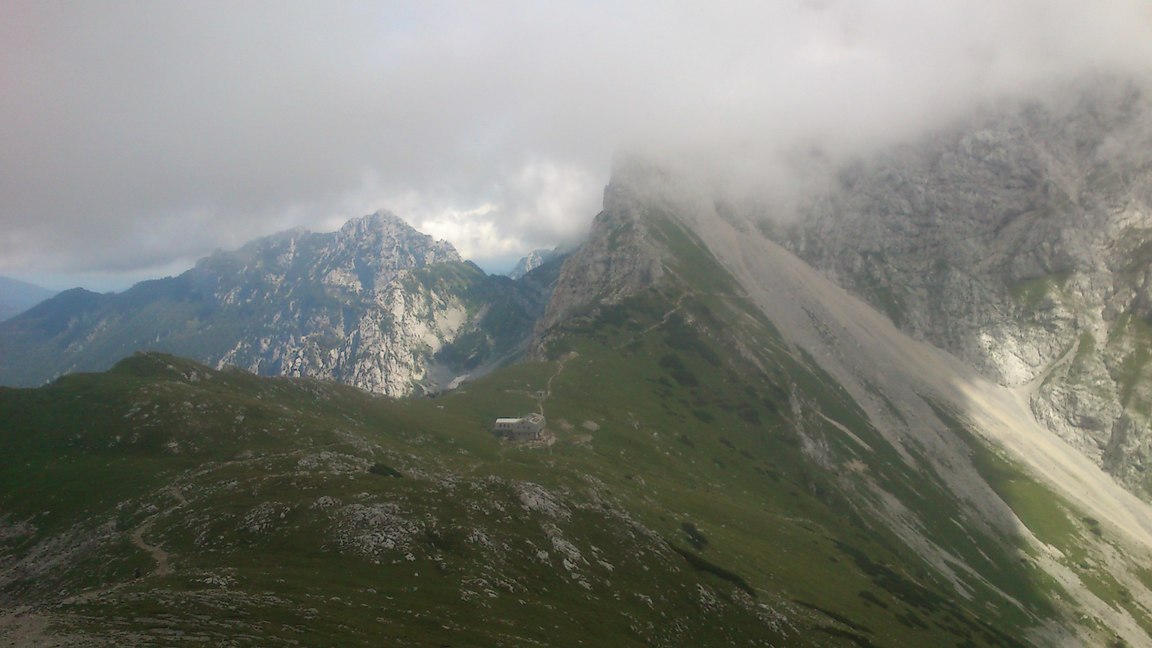 Those alps for me were, during my student days in Zagreb, the closest target for my first solo walks through the stone.
This is why visit to them is always special for me, like visiting old friends, a pure pleasure.
Those alps for me were, during my student days in Zagreb, the closest target for my first solo walks through the stone.
This is why visit to them is always special for me, like visiting old friends, a pure pleasure.